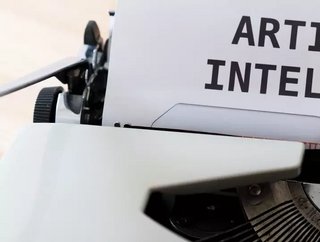Technion: No. 1 in European Artifical Intelligence

The Technion-Israel Institute of Technology is set on advancing the field of AI. It just achieved 1st place in Europe and 15th place worldwide on CSRankings, an annual list of top computer science institutions. To excel, the Technion has spent years bringing together top-notch researchers, upgrading its facilities, and launching undergraduate and graduate artificial intelligence programmes. Now the question remains: can the Technion help fill our massive talent and knowledge gap?
For years, the Technion has carved out a space in artificial intelligence. ‘We have a unique ecosystem’, said Professor Shie Mannor of the Andrew and Erna Viterbi Faculty of Electrical and Computer Engineering. ‘We’ve [accelerated] our information processing and machine learning. Furthermore, we view the dissemination of this knowledge as a mission of national importance’.
Who’s On Board?
Forget the ivory tower. In May 2021, the Technion started to collaborate with US software firm PTC. As part of its agreement, PTC will relocate its Haifa R&D centre to the Technion to work together on AI manufacturing tech. Furthermore, the company will invest money in research into augmented reality, simulations, and industrial IoT. Said Professor Uri Sivan, President of the Technion-Israel Institute of Technology: ‘Scientific and technological breakthroughs need multidisciplinary research and close collaboration between academia and industry’.
Over the past couple of years, the Technion has developed robotics programmes, CAD teaching tools, and stronger connections to the outside world. ‘Industry is well-acquainted with market needs, whereas academia brings basic scientific knowledge and research depth’, said Mannor. The Institute currently commands 46 AI researchers, in addition to ties to many AI-critical industries, such as smart cities, cybersecurity, and natural language processing (NLP). ‘We’re linked to the vanguard of activity in this field’, explained Professor Assaf Schuster.
Unveiling Recent Research
Though universities can feel siloed off from the rest of the world, the Technion’s research will eventually contribute to how businesses recover from the pandemic, make AI-based decisions, and train language models. If you work in business or operations, it’s often easy to overlook academia. Yet the projects on which the Technion is working will eventually filter down to improve commercial technology.
- ‘Redundant Storage Service on the Edge’, (Gala Yadar). Enables unreliable edge computing nodes to jointly provide reliable service
- ‘Causal-Inspired Unsupervised Domain Adaptation’, (Uri Shalit). Improves how we train machine learning models
- ‘Non-Rigid Shape Analysis’ (Ron Kimmel). Explores how to use deep learning to match more complex figures, making possible better simulations and digital twins.
Keep in mind that the Israeli institute isn’t the only one expanding industry intelligence. Many other academic institutions join the list: École Polytechnique, Cornell Tech, Carnegie Mellon, and the technical universities of Lausanne, Eindhoven, and Munich. Yet the Technion is certainly among the leaders of AI R&D—and will yield unique, original research worth watching in the decades ahead.






